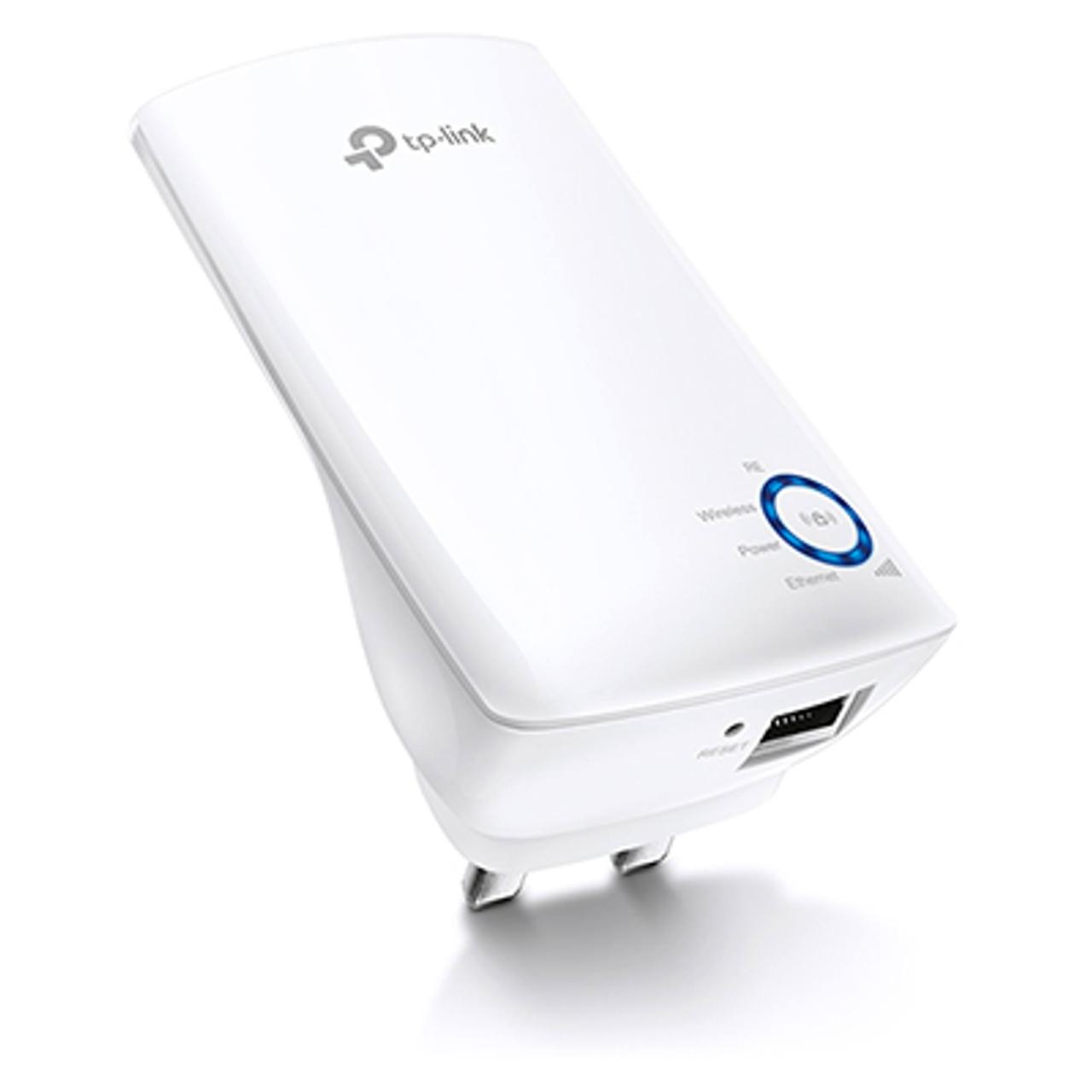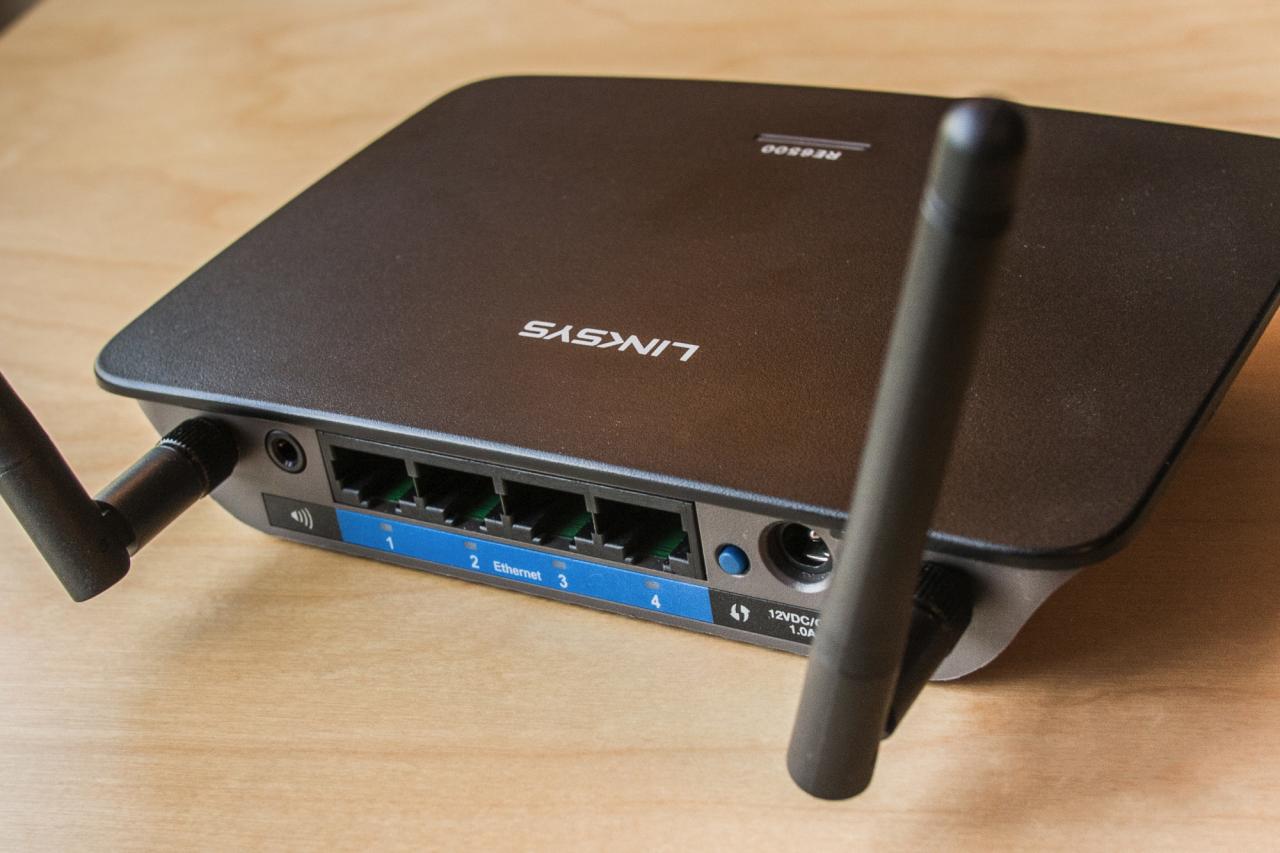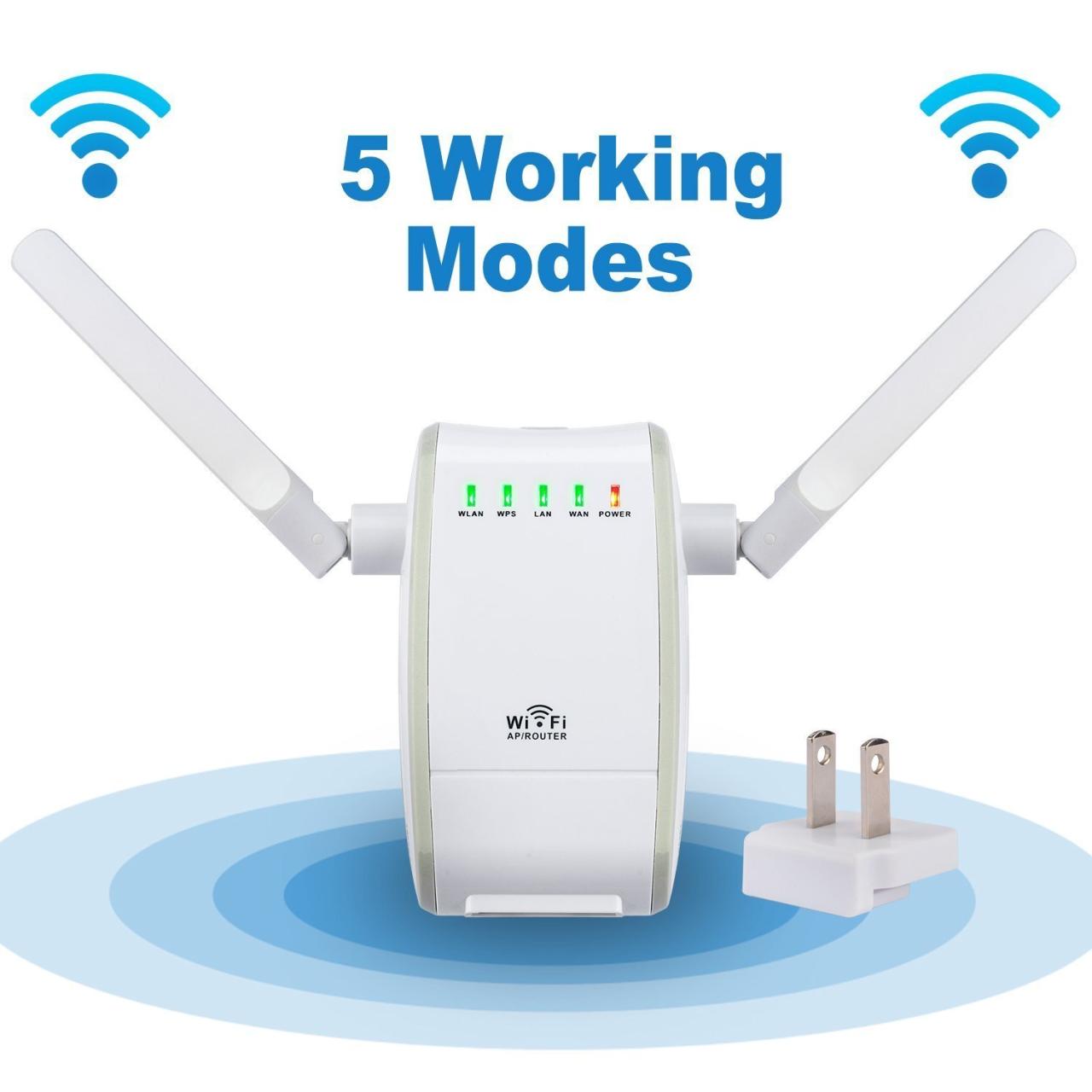Amplificateur Wifi, or Wi-Fi extender in English, is your secret weapon against frustratingly weak internet signals. This guide dives into everything you need to know about these handy devices, from understanding how they work and choosing the right one, to optimizing placement and troubleshooting common problems. Whether you’re battling dead zones in your home or office, or simply need a stronger connection for streaming and gaming, we’ll help you conquer your Wi-Fi woes.
We’ll explore the different types of Wi-Fi amplifiers available, comparing mesh systems to traditional extenders and highlighting key features to consider before buying. We’ll also delve into the technical aspects, explaining signal amplification, ideal placement strategies, and how to identify and mitigate interference. Finally, we’ll cover practical applications, troubleshooting, and even compare some popular brands and models to help you make an informed decision.
Understanding Wifi Amplifiers

A wifi amplifier, also known as a wifi extender or repeater, boosts your existing wifi signal to reach areas where your router’s signal is weak or nonexistent. This simple device can significantly improve your internet connectivity in larger homes, buildings with thick walls, or areas with signal interference.
Wifi Amplifier Functions
Wifi amplifiers receive your router’s wifi signal, amplify it, and rebroadcast it. This extends the range of your network, allowing devices further away from the router to connect reliably. They work by receiving the signal, amplifying it, and then transmitting it again on the same or a different channel.
Types of Wifi Amplifiers
There are several types of wifi amplifiers available, each with its own strengths and weaknesses. These include range extenders, powerline adapters, and mesh wifi systems. Range extenders are the most common type, while powerline adapters use your home’s electrical wiring to extend the network. Mesh wifi systems use multiple interconnected nodes to create a seamless wifi network.
Mesh Wifi vs. Traditional Wifi Amplifiers
Mesh wifi systems generally offer superior performance compared to traditional wifi amplifiers. Mesh systems provide a more consistent and reliable signal across a larger area because they use multiple units working together to create a single, unified network. Traditional amplifiers can sometimes suffer from signal degradation and reduced speeds due to the signal having to travel further. Mesh systems also often include advanced features like automatic band steering and self-healing capabilities.
Features to Consider When Purchasing a Wifi Amplifier
| Feature | Importance | Example | Consideration |
|---|---|---|---|
| Speed/Throughput | High | 1300 Mbps | Consider your internet speed and the number of devices you need to support. |
| Range | High | Up to 2000 sq ft | Measure the area you need to cover. |
| Frequency Bands | High | Dual-band (2.4 GHz and 5 GHz) | Dual-band offers better performance and less interference. |
| Security Protocols | High | WPA2/WPA3 | Ensure strong security to protect your network. |
| Ease of Setup | Medium | WPS button | Choose a model with a simple and intuitive setup process. |
| Number of Antennas | Medium | 2 or more | More antennas usually mean better signal coverage. |
Technical Aspects of Wifi Amplifiers
Understanding the technology behind wifi amplification and optimal placement is crucial for maximizing performance.
So, you’re thinking about getting a wifi extender, an amplificateur wifi, to boost your signal? That’s smart! Good signal is crucial, even for things you might not immediately think about, like preventing accidents. For example, a strong signal could help avoid a situation like the one described in this article about a drone crash in Paris , where interference might have played a role.
A reliable wifi connection is essential for many modern devices, so make sure your signal is strong enough to handle the load!
Wifi Signal Amplification Technology
Wifi amplifiers use a process called signal retransmission. They receive a wifi signal from your router, decode it, and then retransmit it at a higher power level. This extends the reach of the original signal. Many modern amplifiers also utilize technologies like beamforming to focus the signal towards connected devices, improving efficiency and reducing interference.
A wifi extender, or amplificateur wifi as they say in French, can boost your signal for better connectivity. This is especially handy if you’re operating a drone, as a strong signal is crucial; otherwise, you might end up reading about a drone crash due to signal loss. So, before your next flight, make sure your wifi extender is up to the task to avoid any unfortunate incidents.
A reliable signal means a safer, more enjoyable drone experience.
Impact of Placement on Amplifier Effectiveness
The placement of a wifi amplifier is critical to its effectiveness. Ideally, it should be placed within range of both your router and the area you want to cover, minimizing signal degradation. Avoid placing it in areas with significant obstacles (thick walls, metal objects) or sources of interference.
Potential Interference Sources, Amplificateur wifi
Several sources can interfere with a wifi amplifier’s performance, including microwaves, cordless phones, and other electronic devices operating on the 2.4 GHz or 5 GHz frequencies. Other wifi networks in close proximity can also cause interference.
Optimal Placement Strategies for Multiple Amplifiers
In a large house, strategically placing multiple amplifiers can provide comprehensive coverage. Imagine a house with three floors. One amplifier could be placed centrally on the ground floor, another on the second floor, and a third on the third floor. The diagram would show the router, amplifiers, and signal coverage zones, indicating optimal placement to minimize overlap and dead zones.
This approach ensures strong signal strength throughout the house, avoiding dead spots and creating a seamless network.
Practical Applications and Use Cases
Wifi amplifiers are beneficial in various situations, offering a convenient way to extend wifi coverage.
Situations Where Wifi Amplifiers are Beneficial
Wifi amplifiers are particularly useful in homes with large floor plans, houses with thick walls or multiple floors, or areas with poor signal penetration. They are also helpful for extending wifi to outdoor areas such as gardens or patios.
Wifi Amplifier vs. Other Network Extension Methods
Compared to other methods like running ethernet cables or using a mesh system, wifi amplifiers offer a more convenient and cost-effective solution for extending basic wifi coverage in many cases. However, mesh systems usually provide better performance and more consistent signal strength. Running ethernet cables is a more reliable but less convenient option.
Scenarios Where a Wifi Amplifier Might Be Insufficient

- Extremely large homes or buildings requiring extensive coverage.
- Areas with significant signal interference that cannot be mitigated by amplifier placement.
- High-bandwidth applications requiring consistently high speeds across a large area.
- Situations requiring a highly reliable and robust network.
Troubleshooting and Maintenance
Regular maintenance and troubleshooting can ensure your wifi amplifier performs optimally.
Troubleshooting Common Wifi Amplifier Problems

Common problems include weak signals, intermittent connection drops, and slow speeds. Troubleshooting steps include checking the amplifier’s placement, restarting the amplifier and router, checking for interference sources, and updating the amplifier’s firmware. If the problem persists, consider contacting the manufacturer’s support.
Maintaining Optimal Performance
Regularly check the amplifier’s signal strength and placement. Keep the amplifier’s firmware updated to benefit from bug fixes and performance improvements. Avoid placing it near sources of interference. Periodically restart the amplifier to clear any temporary issues.
Configuring Optimal Security Settings
Ensure the amplifier uses a strong password and is configured with the latest security protocols (WPA2/WPA3) to protect your network from unauthorized access. Regularly review and update these settings as needed.
So you’re looking at getting a wifi extender, or “amplificateur wifi” as they say in French. Boosting your signal is key, especially if you’re flying drones. If you’re into serious drone work, check out the latest tech from dji canada , their range is impressive. A strong wifi connection is essential for smooth drone operation, so make sure your amplifier can handle the bandwidth needed for high-quality video streaming and control.
Comparison of Popular Brands and Models
Several brands offer high-quality wifi amplifiers with varying features and price points.
Comparison of Three Popular Brands
| Brand | Key Features | Price Range (USD) |
|---|---|---|
| TP-Link | Wide range of models, good value for money, easy setup | $20 – $100 |
| Netgear | Reliable performance, advanced features in higher-end models | $30 – $150 |
| Linksys | Strong signal strength, good compatibility with other Linksys devices | $40 – $120 |
Specifications of a High-End Wifi Amplifier Model
A high-end model might offer features like tri-band support (covering 2.4 GHz and two 5 GHz bands), MU-MIMO technology for simultaneous streaming to multiple devices, beamforming for targeted signal delivery, and advanced security features. It would also have a wider range and faster speeds than budget models.
Differences in Performance Between Budget and Premium Amplifiers
Budget amplifiers typically offer basic functionality with limited range and speed. Premium models offer significantly improved performance, features, and reliability. They usually cover a wider area, offer faster speeds, and include more advanced technologies like beamforming and MU-MIMO.
Final Wrap-Up

Ultimately, choosing the right amplificateur wifi depends on your specific needs and home environment. By understanding the technology, considering placement carefully, and following our troubleshooting tips, you can transform your Wi-Fi experience from frustrating to fantastic. Remember to consider factors like signal strength, coverage area, and your budget when making your purchase. With a little planning and the right equipment, you can enjoy a consistently strong and reliable Wi-Fi connection throughout your home or office.
Questions and Answers: Amplificateur Wifi
What is the difference between a Wi-Fi extender and a Wi-Fi repeater?
While often used interchangeably, a repeater simply retransmits the signal, potentially reducing speed. An extender typically uses a stronger signal and more sophisticated techniques to improve range and speed.
How far can a Wi-Fi amplifier extend my network?
Range varies greatly depending on the amplifier’s power, the original router’s signal strength, and environmental factors. Check the manufacturer’s specifications for estimated range.
Can I use multiple Wi-Fi amplifiers together?
Yes, but careful placement is crucial to avoid interference and signal conflicts. Mesh systems are designed for this purpose.
Will a Wi-Fi amplifier affect my internet speed?
It can, but a good quality amplifier will minimize speed reduction. Placement and interference are major factors.
